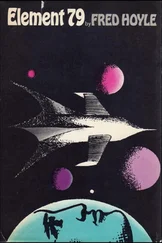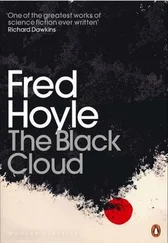“Anything can be allowed for,” she said.
“But they weren’t in the calculations.”
“They can be put in.” She looked up at him. “You can’t beat us, Dr. Fleming. Stop trying before you get hurt.”
He let go of her. “Am I likely to get hurt?”
“Yes.”
“Why should you warn me?”
“Because I like you,” she said, and he half smiled at her.
“You’re talking like a human being.”
“Then it’s time I stopped. Please go now.”
He stood obstinately, but there was a note of pleading in her voice that had never been there before, and an expression of unhappiness on her face. “Please... Do you want me to be punished?”
“By whom?”
“Who do you think?” She glanced at the computer control racks.
Fleming was taken off-guard: this was something he had never thought of.
“Punished? That’s a new one.” He put the pad of figures in his pocket and went to the door. In the doorway he turned back to deliver a last shot. “Who do you belong to?”
She watched him go and then turned reluctantly towards the display panel, and walked slowly, compulsively, up to it. She raised her hands to communicate with the terminals, then hesitated. Her face was strained, but she raised them again and touched the plates. For a moment all that happened was that the lights blinked faster, as the machine digested the information she gave it. Then the voltage meter below the panel suddenly peaked.
Andromeda gave a cry of pain and tried to pull her hands away from the plates, but the current held her fast. The voltage needle dropped, only to swing up again, and she cried out again... And then a third time and a fourth and over and over and over...
Once more it was Judy who found her. She came in a few minutes later, looking for Fleming, and saw to her horror the girl lying crumpled on the floor, where Christine had been.
“Oh no!” The words jerked out of her, and she ran forward and turned the body over. Andromeda was still alive. She moaned as Judy touched her, and curled away, whimpering quietly and nursing her hands together. Judy raised the blonde head and rested it in her lap and then took the hands and opened them. They were black with burning, except where the red flesh lay bare down to the bone.
Judy let them go gently. “How did it happen?”
Andromeda groaned again and opened her eyes.
Judy said to her, “Your hands.”
“We can easily mend them.” The girl’s voice was hardly audible.
“What happened?”
“Something went wrong, that’s all.”
Judy left her and telephoned Dr. Hunter.
From that moment events moved with almost cataclysmic speed. Hunter put a temporary dressing on Andromeda’s hands and tried to persuade her to move into the station’s sick bay, but she refused to leave the computer until she had seen Madeleine Dawnay.
“It will be quicker in the end,” she told them. Although she was suffering from shock, she went sturdily through Dawnay’s papers until she found the section she was looking for. Hunter had given her local shots to ease the pain in her hands, and with these and the bandages she fumbled a good deal, but she pulled out the sheets she wanted and shuffled them across to Dawnay. They were concerned with enzyme production in the D.N.A. formula.
“What do we do with these?” Dawnay looked at them doubtfully.
“Get an isolated tissue formula,” said Andromeda, and took the papers back to the computer. She was weak and pale and could hardly walk. Dawnay, Hunter and Judy watched anxiously as she stood again between the terminals and put out her swathed hands; but this time there was no disaster, and after a little the machine started printing-out.
“It’s an enzyme formula. You can make it up quite easily.” She indicated the printer-paper to Dawnay and then turned to Hunter. “I should like to lie down now, please. The enzyme can be applied to my hands on a medicated base when Professor Dawnay has prepared it, but it should be as soon as possible.”
She was ill for several days, and Hunter dressed her hands with an ointment containing the formula, when Dawnay had made it up. The healing was miraculous: new tissue—soft natural flesh, not the hard tissue of scarring—filled in the wounds in a matter of hours, and formed a fresh layer of pale pink skin across her palms. By the time she recovered from the effects of the electric shocks, her hands were remade.
Hunter, meanwhile, had reported to Geers and Geers had sent for Fleming. The Director, not yet certain of the outcome of the accident, was sick and thin-lipped with worry, his brief season of fellowship gone.
“So you decide to throw it off balance!” He flung the words across his desk at Fleming and pounded his fist on the polished wood. “You don’t consult anyone—you’re too clever. So clever, the machine goes wrong and damn near kills the girl.”
“If you won’t even listen to what happened.” Fleming’s voice rose to match his, but Geers interrupted.
“I know what happened.”
“Were you there? She knew she was going to be punished. She should have had me thrown out, she should have wiped out what I’d put into the computer; but she didn’t—not soon enough. She hesitated and warned me and let me go, then she went and touched the communication terminals—”
“I thought you’d gone,” Geers reminded him.
“Of course I’d gone. I’m telling you what happened inevitably: she let the machine know that she was alive, that it had been given false information, that the source of the information was around and she hadn’t stopped it. So it punished her by giving her a series of electric shocks. It knows how to do that now; it learnt on Christine.”
The Director listened with thinly disguised impatience. “You’re guessing,” he said at the end.
“It’s not guesswork, Geers. It was bound to happen, only I didn’t realise in time.”
“Have you your pass?” Geers looked at him glintingly through his spectacles. “To the computer building.”
Fleming sniffed and rummaged in his pocket. “You can’t fault me on that one. It’s quite in order.”
He handed it across the desk. Geers took it, examined it, and slowly tore it up.
“What’s that in aid of?”
“We can’t afford you, Fleming. Not any more.”
Fleming banged the desk in his turn. “I’m staying on the station.”
“Stay where you like; but your association with the computer is over. I’m sorry.”
Geers felt better with Fleming out of the way, and better still when he heard of Andromeda’s recovery. He got all the facts he could from Dawnay and Hunter about the enzyme, and then got through on his direct line to Whitehall. The reaction was as he thought. He sent for Andromeda and questioned her and seemed well pleased.
Fleming a year or two back would have hit the bottle, but this time he had no appetite even for that. The same compulsion that had held him to the computer tied him to the compound; even though there was nothing he could now do, no part he could have in the project, he remained on the station, solitary and uncertain and given to long walks and lying on his bed. It was deep winter, but calm and grey, as though something dramatic were being withheld.
About a week after the accident—or punishment, as Fleming thought of it—he was returning from a walk on the moors when he saw an enormous and extravagantly shining car outside Geers’s office, and as he passed it a short, square man with a bald head got out.
“Dr. Fleming!” The bald man raised a hand to stop and greet him.
“What are you doing here?”
“I hope you do not mind,” said Kaufmann.
Fleming looked to see who was around. “Get out,” he said.
Читать дальше












